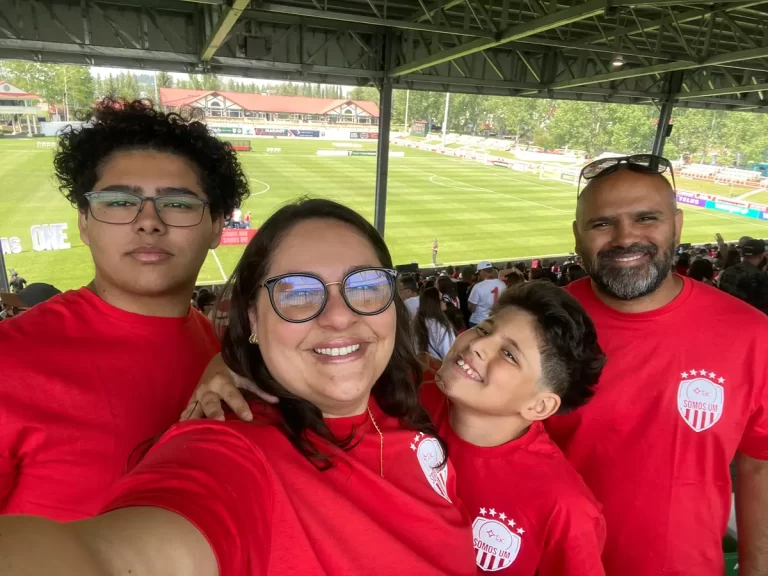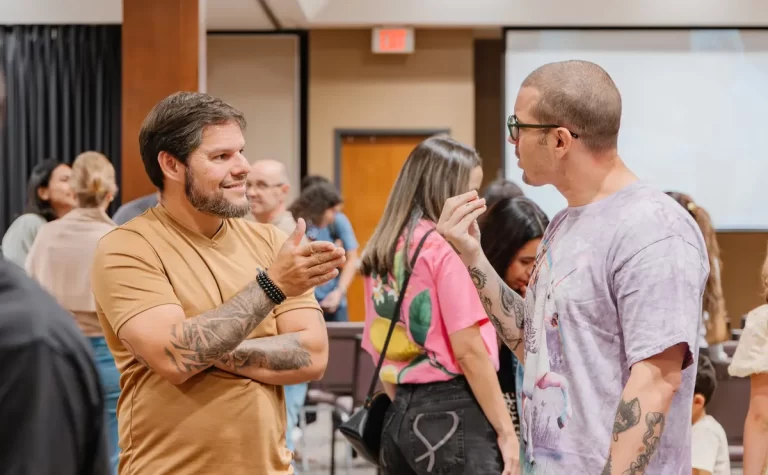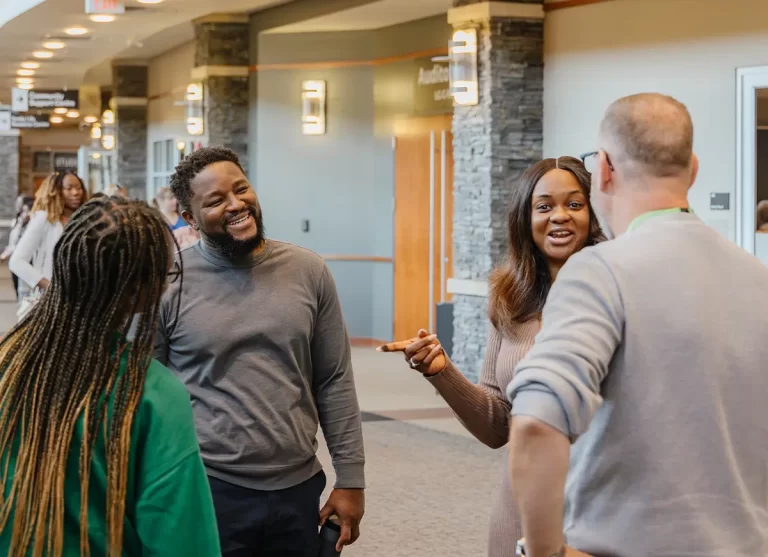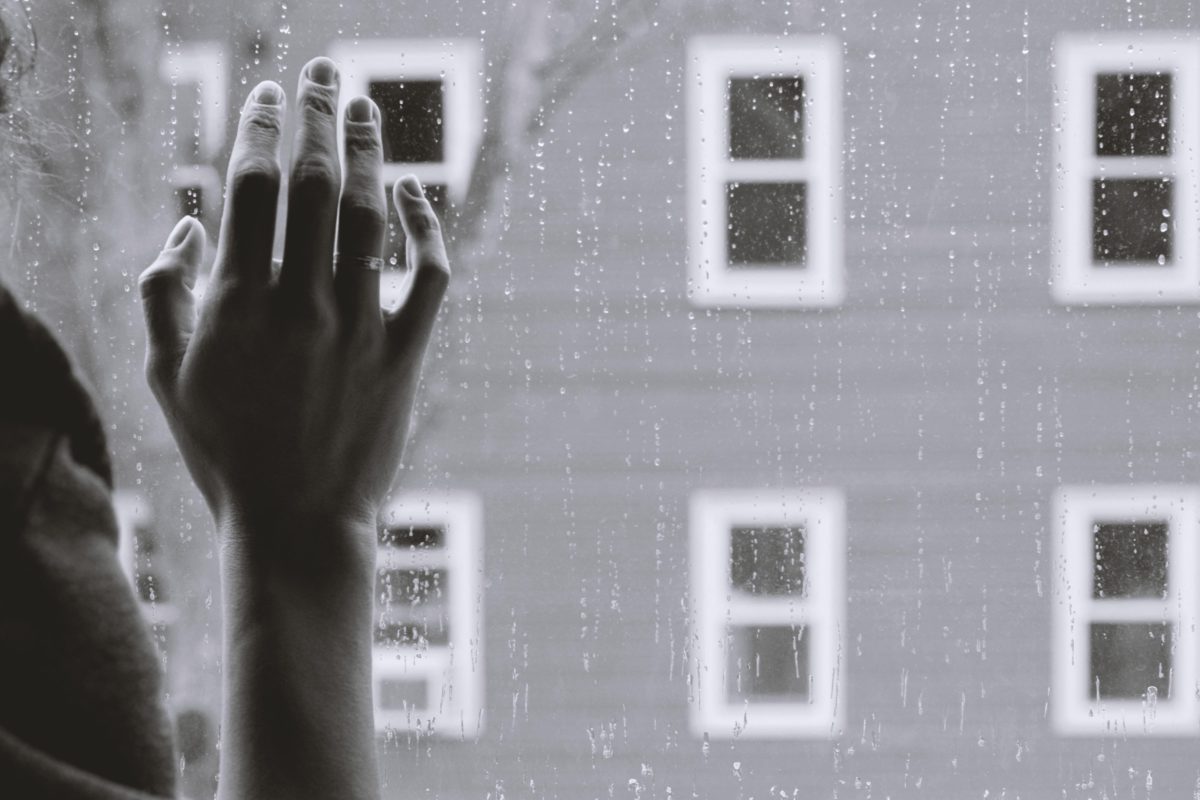
We usually associate grief with the suffering experienced after the loss of a loved one. Grief can actually follow any type of loss. We can experience grief after losing a job, a relationship, our sense of safety, or our financial security. We can experience grief when our roles change, such as when our children grow up and our parenting roles shift. We can even experience grief with events that simultaneously make us happy, such as leaving a familiar home while moving to a new home, or leaving a familiar job to start a new job.
People are experiencing many layers of grief with the COVID-19 pandemic. Jobs and financial security have disappeared. Plans for retirement and weddings have changed. Graduations and trips have been cancelled. We’ve lost normal day-to-day interactions and the ability to get together with people. We can’t celebrate, worship, or grieve in groups. Things we took for granted, like sitting down in a restaurant or popping in at a favourite store, are gone. The unthinking safety we once felt when hugging a parent or shaking hands with a stranger are gone. Some of us have lost people, lost the comfort of a funeral, lost the traditions that help us grieve.
We’ve lost these things in our own lives. We know similar losses have occurred across the whole world. We can’t be sure of what will happen in the future, but we’re starting to realize things are not simply going to return to normal. We don’t really know what the future will look like.
So, not only are we grieving losses, but we’re anticipating further losses in the future. What will happen with the trip we have booked or the reunion we have planned? What will we do if someone dies and we can’t go to the funeral? Will the next generation get jobs? How will the deficit get paid? And in Alberta, what will happen to our economy even when things get better for everyone else in the world? This is anticipatory grief. Anticipatory grief means that we aren’t just having to cope with everything that’s already changed, but we’re also grieving future losses that are yet to come.
This is all grief. Grief happens when we lose something or are aware that we will lose something. We suffer and can suffer intensely, and we’re gradually restored to feeling okay, though perhaps changed.
The intensity of grief usually varies with the importance of what we have lost. We expect to grieve when we lose a person in our lives, and we suffer deeply. But we didn’t expect that we would grieve for things that just seemed part of everyday life. We’re all, at the same time, grieving the loss of many things, including things we never even thought were important.
The Faces of Grief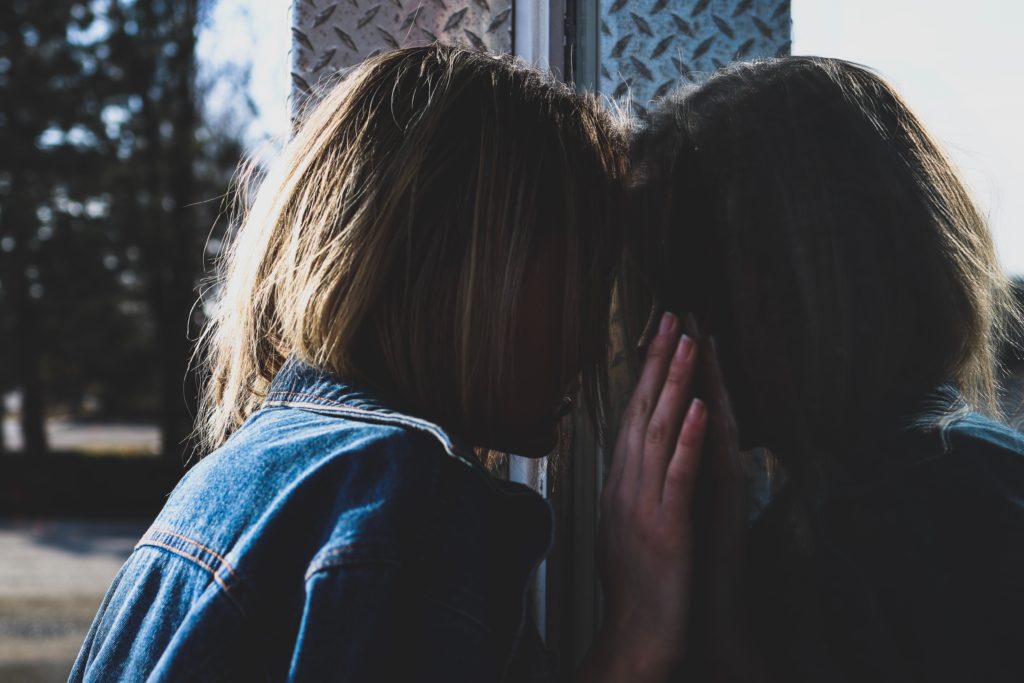
What happens when we have loss? What happens when we grieve? Many people have heard of Elisabeth Kubler-Ross’s 5 stages of grief: denial, anger, bargaining, despair, and acceptance. Another stage was added by David Kessler: meaning. These aren’t really stages – they don’t happen in sequence and we might not experience each one. Perhaps think of these as aspects of grief that we experience, reexperience, and move back and forth between as we cope with grief and loss. Usually it’s a bit of a roller coaster of sudden ups/downs as we move between these aspects of grief. Let’s look at each.
Denial: This can be denying our feelings or denying the reality of what is happening. Denial helps us escape from grief. When we first hear of a death, we often say ‘No’ or ‘It can’t be’ as a first response. During the pandemic, denial can sound like ‘It’s just a flu’ or ‘I’m healthy/young so I’ll be fine’ or ‘There will be a vaccine for sure.’
Anger: Anger activates us, helps us get things done, and gives us a sense of control. Anger helps us escape by externalizing our grief elsewhere. We blame people and get mad. With death, we might get mad at the cost of the casket, hospital rules, not being able to have a funeral, airline problems, and so on. During this pandemic, denial in the face of grief is breaking distancing rules, getting mad that parents won’t let you go out, or blaming countries/governments.
Bargaining: We bargain when we aren’t denying anymore, but are still trying to feel a sense of control. Bargaining helps us reduce the pain of grief while beginning to accept something. With death, bargaining can be ‘Just let me get through the funeral’ or ‘At least they both didn’t die.’ With COVID-19, bargaining sounds like ‘This will be over by May’ or ‘I can visit as long as we wear masks.’
Despair: Despair in grief is feeling hopeless, depressed, lost, and intensely sad. The reality of loss sets in and the suffering is immense. The depth of suffering can feel unbearable and all-consuming. Thoughts become all-or-nothing and exaggerated. With death, despair can be ‘I will never feel okay again’ or ‘I can never, ever get over this.’ With COVID-19, despair can sound like ‘I’ll never be able to get a job’ or ‘No one cares about me’ or ‘We’re going to lose the house.’
Acceptance: Paradoxically, it’s only when we surrender to our deep feelings of loss that we begin to heal. We surrender to what has happened, stop denying and fighting, accept the sadness, and just cope as best we can. With death, acceptance can sound like ‘It’s time to clean out the closet’ or ‘It’s time to get groceries’ or ‘This will get better.’ With COVID-19, acceptance can sound like ‘All I can do is my part’ or ‘I can still connect with people by phone’ or ‘We’ll look back at this time and be grateful one day’ or ‘Things will change in the world, but maybe for the better.’
Meaning: It’s in this aspect of grief that we find peace and hope. We honour what has been lost, who has been lost. Our memories bring feelings of warmth and gratefulness rather than only sadness. With death, making a special donation, taking a special trip that was dreamed of together, or writing a story can bring meaning. Meaning also comes in small ways, such as feeling peace in thinking that parents are now together or noticing coincidences that bring comfort. With COVID-19, people are wondering what should change in their lives afterward. After the pandemic, people will change the directions of their lives in big ways. Aspects of our world and societies will change, and we’ll move forward. We’ll look at what was learned and find gratefulness in this. All these things show that meaning is being found.
Beyond Grief
Sometimes, we get stuck in grief, typically in the despair of grief. This has been called complicated grief, prolonged grief, and more recently persistent complex bereavement. This is a mental health condition that goes beyond grief, marked by persistent longing, deep sadness, sense of disbelief, and inability to accept the loss. In North America, 12 months is used as the point in time when complex bereavement would first be named, but other parts of the world use 6 months. Help is needed for complex bereavement. Otherwise, there is risk for substance abuse, sleep disorders, impaired immune systems, suicidal thinking, and major depressive episodes. Persistent complex bereavement looks like heavy grief that won’t go away and becomes depression.
Complex grief, or persistent complex bereavement as a mental health condition, happens to about 5-10% of people. It is even more common after a violent death (10% to 15%) or disaster (up to 75%). People are at higher risk when they’re socially isolated, feel insecure in their relationships, have pre-existing anxiety, and have experienced sudden and unexpected loss. The COVID-19 pandemic has many of these variables that increase risk for complicated grief.
Christian coping responses in grief have been studied with surprising thoroughness. Some responses are protective for Christians experiencing grief: looking for meaning in the situation; seeking spiritual support; collaborative coping; spiritual connections; looking to God for strength and help; looking to God for guidance; forgiveness; benevolent reconsideration of religious beliefs. Most Christians are found to engage in these positive coping behaviours after grief.
But some Christian responses in grief are predictive of complex prolonged grief, delayed recovery, and lasting emotional dysfunction. These are less common and include spiritual discontent, discontent in church relationships, questioning God, doubting faith, anger toward God, feeling abandoned by God, seeing God as punitive, and seeing demonic aspects to the situation. These behaviours are associated not only with prolonged grief, but then reduced quality of life, physical health, and mental health. These are warning signs that the grieving process is going in an unhealthy direction and help is needed.
Should grief become persistent and complicated for Christians, a spiritual crisis is likely to follow. This can involve resentment toward God, questions about faith, dissatisfaction with church family, and substantial changes in spiritual beliefs and behaviours. Significant aspects of the self are thus changed.
Coping Better
Religious belief is generally associated with, for lack of better words, easier grief processes with better outcomes. Belief in God is clearly associated with lower levels of depression and hopelessness in grief. Surprisingly, the depth of belief, the commitment to church, and the amount of Christian knowledge do not provide any further protection in grief processes. Simple belief is enough.
What can we do to cope better with grief and loss? Many Christian coping strategies are shown to be helpful when coping with grief, and it’s important to draw upon these. Other coping strategies can also be helpful. Here’s a list to draw from:
- Seek spiritual support for feelings of loss and grief.
- Maintain church connections – text, phone, meet online.
- Pray and look to God for strength, help, support, and guidance.
- Look for meaning in your situation – religious meaning or other meaning.
- Join in a group with other Christians to support each other.
- If you’re feeling conflict with people in the church, try to resolve this and find peace.
- Avoid interpreting events as God punishing or abandoning.
- Avoid interpreting events as involving the devil’s actions.
- Keep busy.
- Talk to others about how you feel and what’s happening in your life.
- Do something COVID-19-related to help others (e.g. get groceries for older people, make masks, etc.).
- Memorialize what is lost and give voice to your experiences – write a letter to your future self, do a COVID-19 time capsule, write a story, keep a diary, write about what you are observing, take pictures of what is happening.
- Note what makes you feel better and do more of this.
- When your emotions are too much, do deep breathing or a grounding exercise. These are easy to find online. Use your senses and name what you see, feel, and smell.
- When your emotions are high, observe them but don’t become them. Wait for them to pass. Remind yourself they’ll pass. Feel your feelings and then keep going.
- Distract yourself when you’re ruminating. Listen to music, watch a show, play on your phone.
- Bring yourself back to the present when you’re worrying about the future. Remind yourself you have food, a place to live, everything that you need in this moment.
- Try to keep basic routines.
- If you’ve lost someone, give yourself time. There’s no right or wrong way to feel, and you’ll go through many feelings. Death during the pandemic may bring feelings of unreality, may involve other types of loss (no funeral, not being present, for example), and may complicate grief.
- Get counseling.
We’re all living with many layers of grief and loss right now, some recognized, some unconscious, and some yet to come. We might use words like ‘stress’ when what we actually feel is grief. Actively look for meaning in what’s happening. Think about what you hope will change in the world around you. Think about what you hope will change in your own life. This is hard in many ways, but it will end. Know whose you are and remember whose hands you are in. Your faith does give comfort. Remember that sadness and anger are normal feelings – don’t feel guilty and think that you aren’t trusting God enough. As Christians, we can feel grief and peace at the same time.
Marlis Krueger attends FAC and serves with The Family Psychology Place in Calgary.
You may also be interested in …
- Watching “Finding Our Way: From Grief to Joy” service, May 3, 2020
- Grief Support

